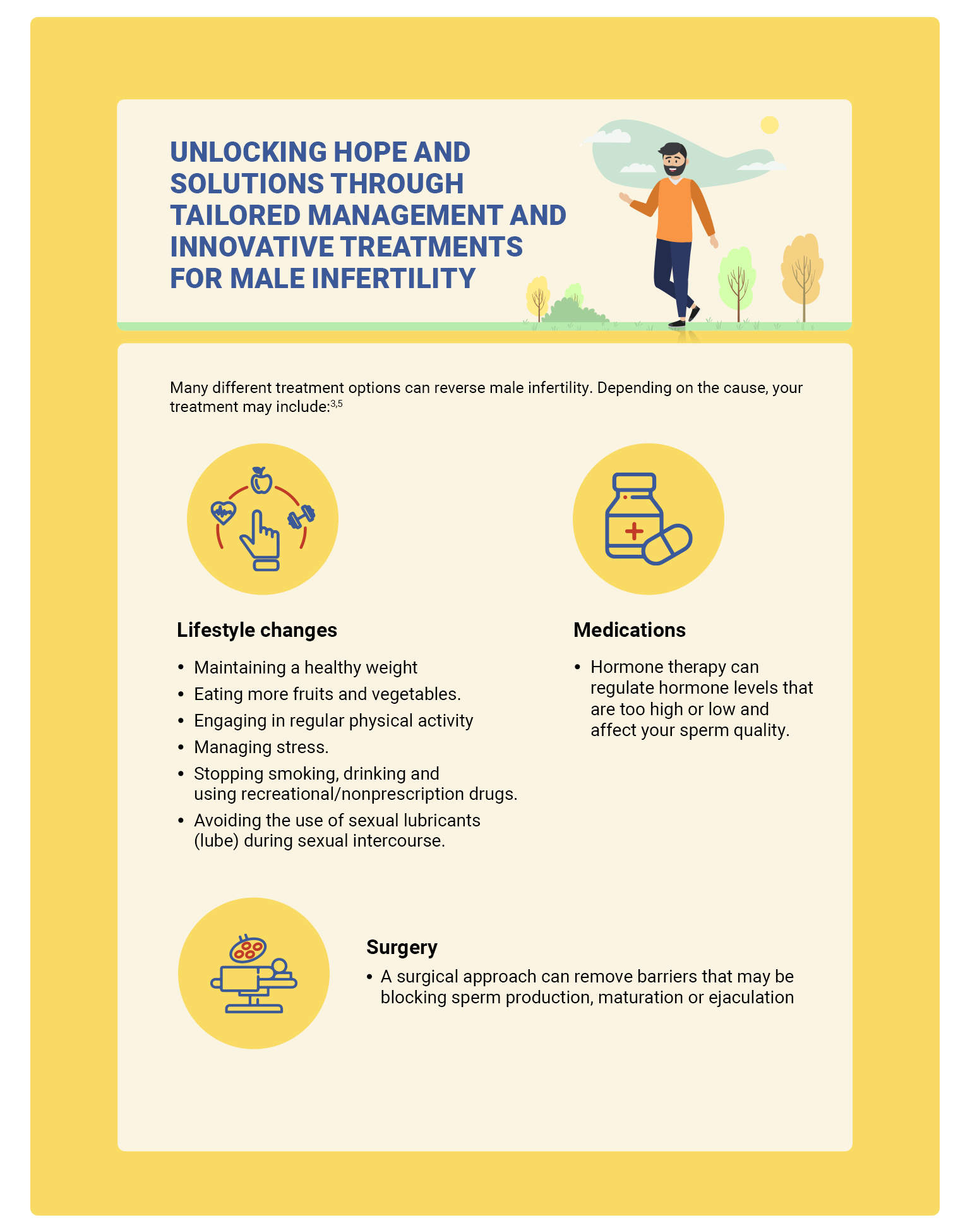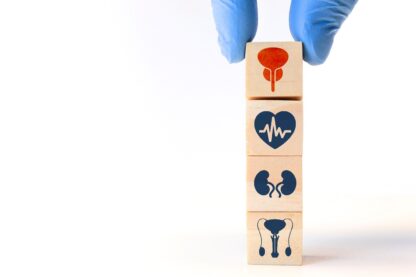Understanding Male Infertility
5 min read
Comprehensive Guide to Male Reproductive Health and Infertility
Almost one in seven couples those who have had frequent, unprotected sexual relations for a year or more are infertile, meaning they are unable to conceive. Male infertility contributes at least partially to the situation in up to half of these couples.1
Infertility is a disease of the reproductive system. It makes a person unable to have children. It can affect a man, a woman, or both. Male infertility means that a man has a problem with his reproductive system. It means you cannot start a pregnancy with your female partner.2
What are the signs of unhealthy sperm?3
The primary symptom of male infertility is being unable to have a biological child. But male infertility can also lead to many psychological and emotional symptoms, including feelings of:
- Depression
- Loss
- Grief
- Inadequacy
- Failure
Causes
Healthy sperm that can travel depends on many things. Problems can stop cells from growing into sperm. Problems can keep the sperm from reaching the egg. Even the temperature of the scrotum may affect fertility. Below are the main causes of male infertility:4
1. Sperm disorders
The most common problems are with making and growing sperm. Sperm may:
- not grow fully
- be oddly shaped
- not move the right way
- be made in very low numbers (oligospermia)
- not be made at all (azoospermia)
2. Varicoceles
Varicoceles are enlarged scrotal veins. In 16 out of 100 guys, they are present. Infertile men are more likely to have them (40 out of 100). They impair sperm development by obstructing appropriate blood flow. It's possible that varicoceles cause blood to return from your abdomen to your scrotum. Then, the testicles are too heated to produce sperm. Low sperm counts may result from this.
3. Retrograde ejaculation
Is an opposite ejaculation of semen. Rather than exiting through the penis, they enter your bladder. This occurs when your bladder's muscles and nerves fail to contract during an orgasm (climax). Normal sperm may be present in semen, but since the penis cannot release the semen, it cannot enter the vagina.
4. Immunological Infertility
A man's body can occasionally produce antibodies that target his own sperm. Most typically, injuries, surgeries, or infections result in the production of antibodies. They impede the proper movement and function of sperm. The precise way that antibodies reduce fertility is still unknown. They can, as we know, make it more difficult for sperm to pass through the fallopian tube and into an egg. This is not a typical reason for infertility in men.
5. Obstruction
Sperm transit tubes can occasionally become obstructed. Blockage can result from recurring infections, surgery (such as a vasectomy), edoema, or birth abnormalities. It is possible to block any portion of the male reproductive system. Sperm from the testicles cannot exit the body after ejaculation if there is a barrier.
6. Hormones
The pituitary gland secretes hormones that instruct the testicles to produce sperm. Poor sperm development is caused by very low hormone levels.
7. Medication
Certain medications can change sperm production, function and delivery. These medications are most often given to treat health problems like:
- arthritis
- depression
- digestive problems
- anxiety or depression
- infections
- high blood pressure
- cancer
Unlocking the Mystery: 5 Key Steps in Diagnosing Male Infertility

Medical History and Physical Examination1
1
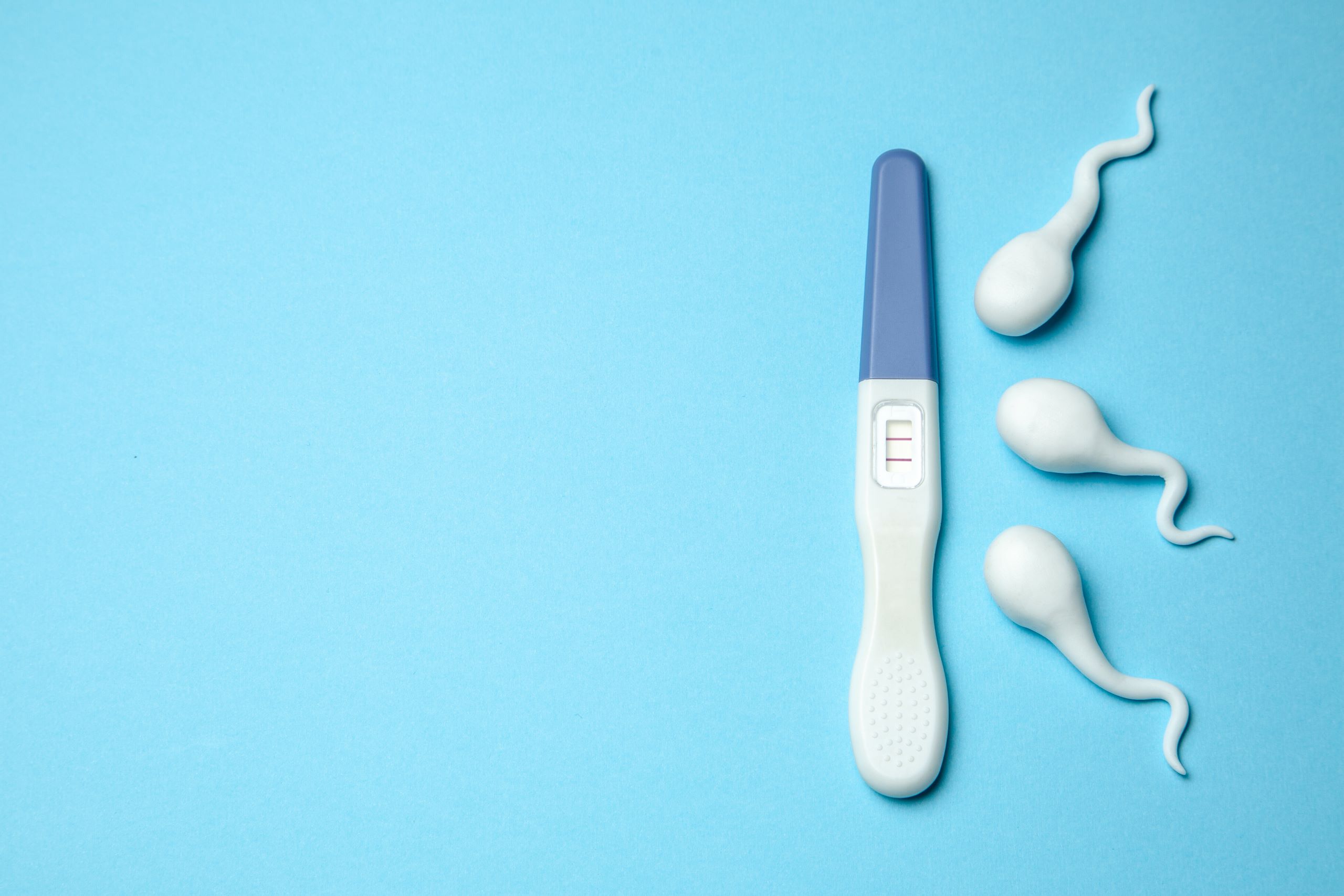
Semen Analysis
2
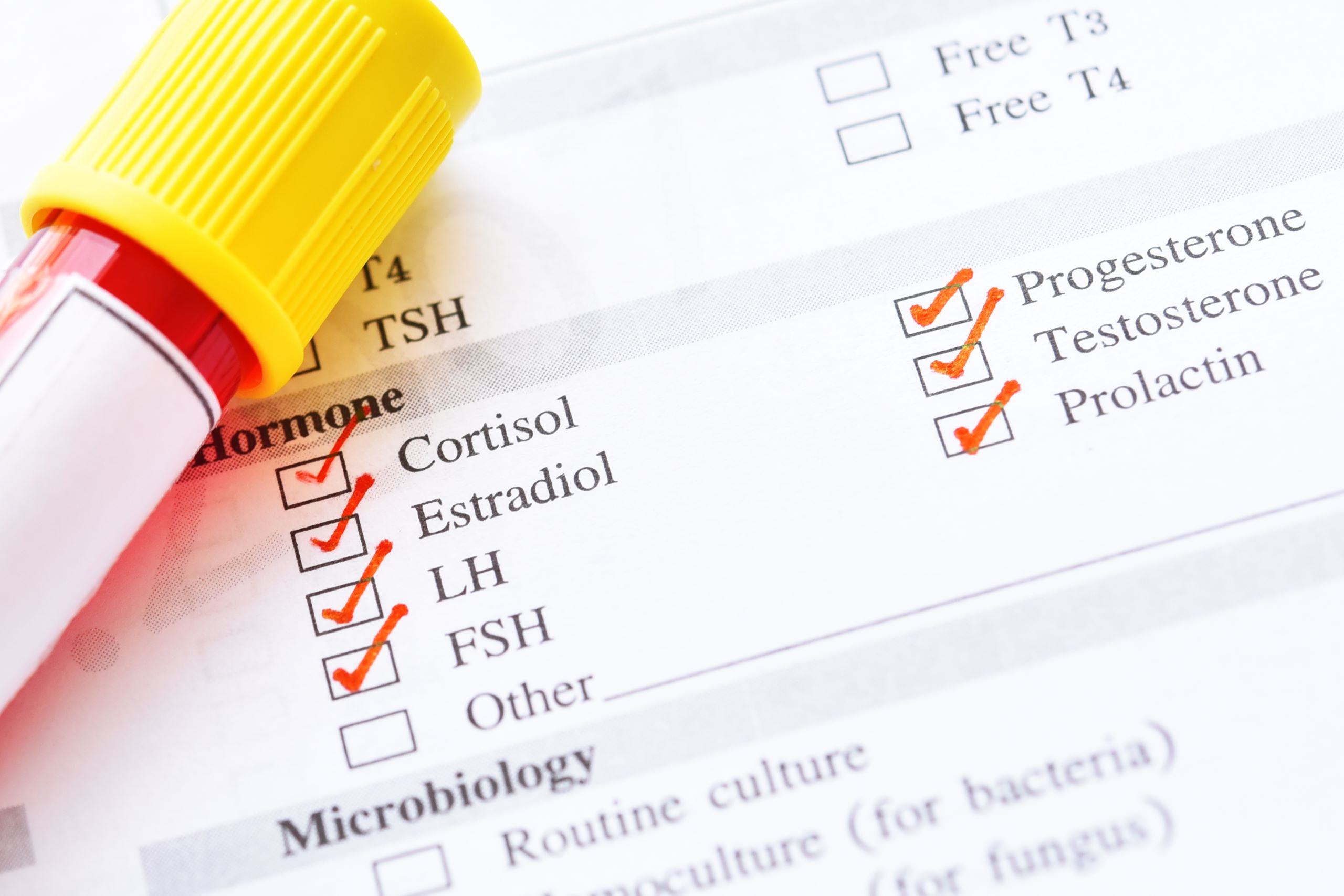
Hormonal Evaluation
3
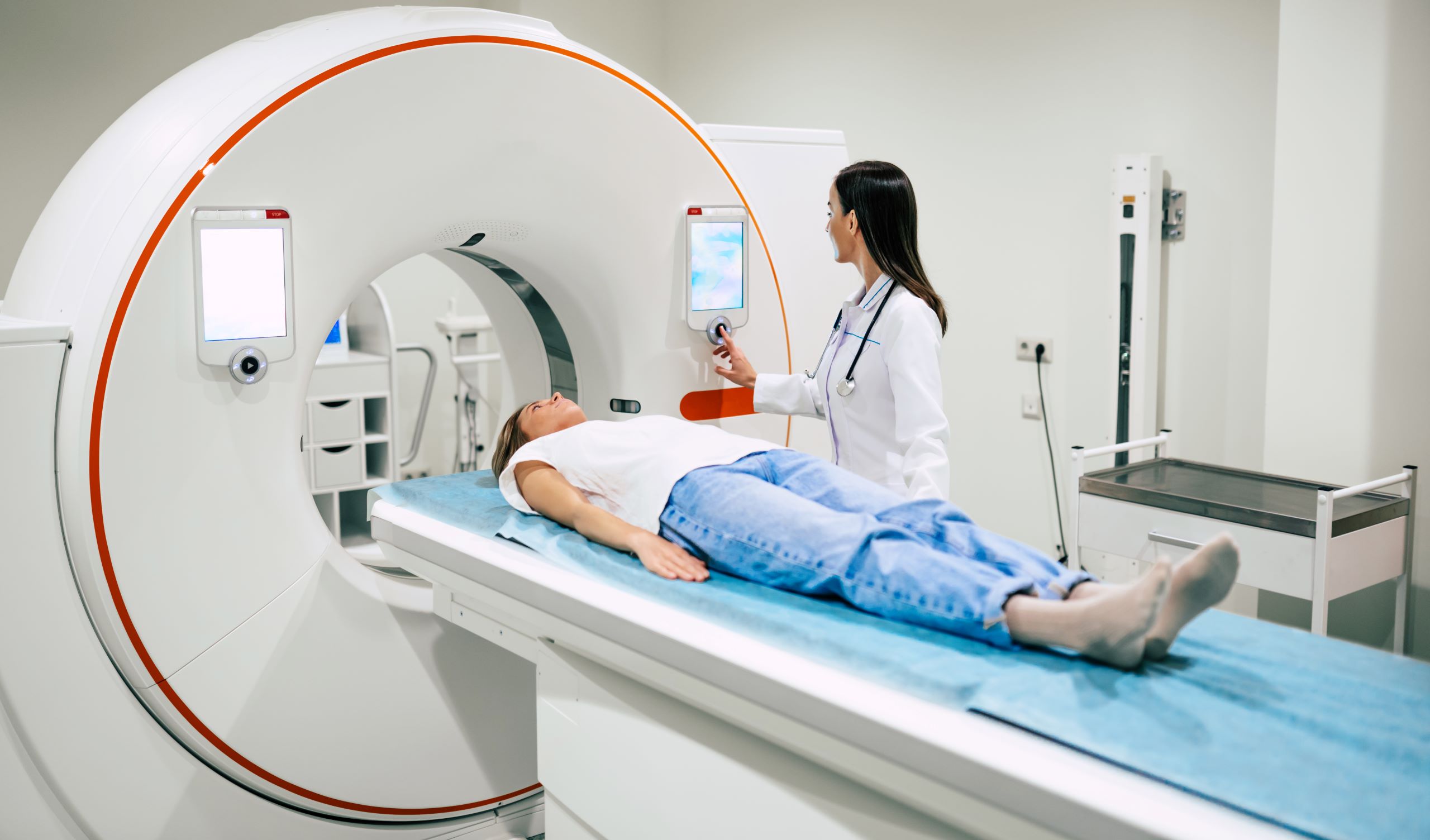
Imaging Studies
4
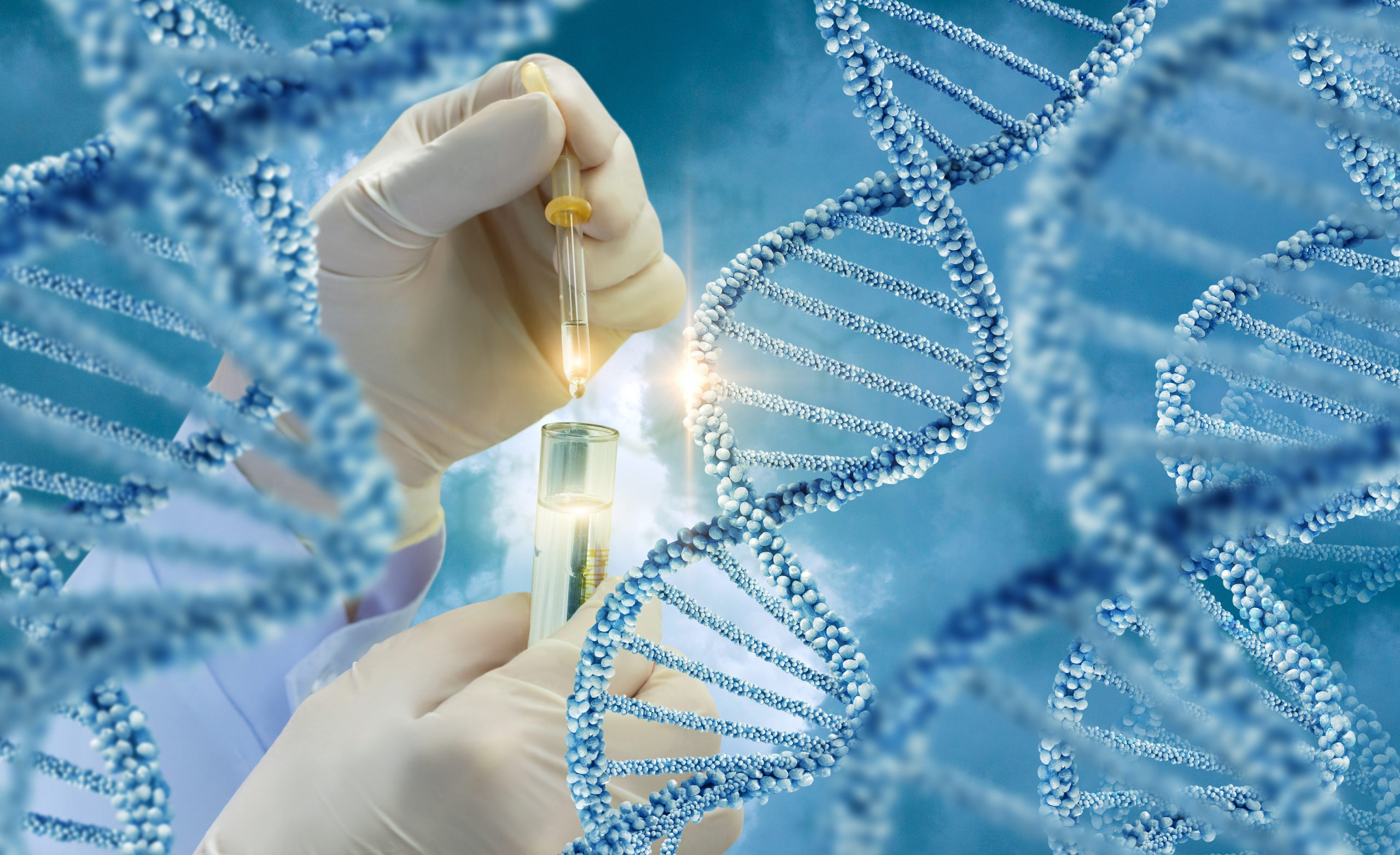
Genetic Testing
5

